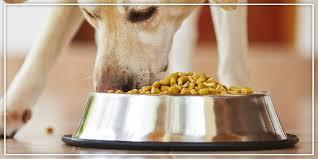As dog owners, we always want to provide the best for our pets. While traditional dog food is a convenient option, you may wonder if there are healthier and more natural alternatives available. The good news is that there are plenty of nutritious, dog-friendly foods you can incorporate into their diet. In this post, we’ll explore some great alternatives to commercial dog food that can support your dog’s health and well-being.
1. Lean Meats
Dogs thrive on protein, and lean meats like chicken, turkey, beef, and lamb are excellent sources. These proteins provide essential amino acids and nutrients to keep your dog healthy.
-
What to avoid: Never serve cooked bones, as they can splinter and harm your dog. Avoid seasoning with garlic, onions, or excessive salt, which are harmful to dogs.
-
Serving Tip: Cook the meat thoroughly and cut it into small, digestible pieces.
2. Rice and Vegetables
A mix of cooked rice and vegetables is another great alternative. Rice is gentle on the stomach, while vegetables like carrots, spinach, and peas provide fiber and vitamins.
-
What to avoid: Avoid starchy vegetables such as corn and potatoes, which can be hard for dogs to digest.
-
Serving Tip: Combine cooked rice and vegetables with a protein source like meat for a complete meal.
3. Eggs
Eggs are an affordable and healthy protein source for dogs. Packed with essential fatty acids and amino acids, eggs are also great for their coat and skin health.
-
What to avoid: Always cook the eggs thoroughly to eliminate any risk of bacteria like Salmonella.
-
Serving Tip: Scramble or boil eggs and serve them alone or mix them into their regular food.
4. Fish
Fatty fish such as salmon, sardines, and mackerel are rich in omega-3 fatty acids, which support heart health, skin, and coat condition. They also provide easy-to-digest protein.
-
What to avoid: Always remove bones from the fish before serving it to your dog.
-
Serving Tip: Cook the fish well and avoid adding oils or seasoning.
5. Cottage Cheese and Yogurt
Plain, unsweetened yogurt and cottage cheese are both packed with probiotics and calcium, which support digestive health and strengthen bones.
-
What to avoid: Avoid flavored yogurts or any dairy containing artificial sweeteners like xylitol, which can be toxic.
-
Serving Tip: Offer small portions as a snack or meal topper.
6. Pumpkin
Pumpkin is rich in fiber and aids in digestion. It’s especially useful for dogs with gastrointestinal issues such as diarrhea or constipation.
-
What to avoid: Use only plain, cooked pumpkin or canned pumpkin without added sugars or spices.
-
Serving Tip: Add a small amount of pumpkin to your dog’s regular food for added nutrition.
7. Sweet Potatoes
Sweet potatoes are a healthy source of fiber, antioxidants, and vitamins. They are easy to digest and help regulate your dog’s digestive system.
-
What to avoid: Never serve raw sweet potatoes, as they are difficult for dogs to digest.
-
Serving Tip: Bake or boil the sweet potatoes and cut them into small pieces for easy consumption.
8. Bone Broth
Bone broth is a nutrient-dense liquid that supports joint health, digestion, and hydration. It’s an excellent way to add flavor to your dog’s food while providing beneficial nutrients.
-
What to avoid: Ensure the broth does not contain onions, garlic, or added salt.
-
Serving Tip: Pour a little cooled bone broth over your dog’s meal or serve it as a treat.
9. Apples and Bananas
Apples and bananas are both safe and healthy fruits for dogs in moderation. Apples provide vitamin C and fiber, while bananas are a good source of potassium.
-
What to avoid: Remove apple seeds and cores before feeding, as they contain cyanide, which is toxic. Limit bananas due to their sugar content.
-
Serving Tip: Slice the fruits into small, manageable pieces for easy snacking.
10. Oats
Oats are a great alternative to dog food and are easy on your dog’s stomach. They are high in fiber, which helps with digestion and provides steady energy.
-
What to avoid: Avoid flavored oats or instant oatmeal, as they may contain added sugars or preservatives.
-
Serving Tip: Cook the oats and serve them plain or mixed with protein and vegetables for a balanced meal.
Conclusion
While commercial dog food is designed to meet your dog’s nutritional needs, there are plenty of healthy, natural alternatives you can consider to improve their diet. Whether you’re looking to supplement their meals or fully replace dog food with homemade options, these alternatives provide a variety of nutrients to keep your dog happy and healthy. However, always consult with your vet before making any major dietary changes, especially if your dog has underlying health conditions.
For more tips on feeding your dog naturally, check out our full article on What Can I Feed My Dog Instead of Dog Food?.



